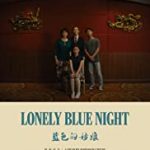I’ve often wondered what makes a successful writer. I’ve tossed around many attributes like talent and connections but the one thing I keep coming back to is productivity. A successful writer is one who writes. Who actually writes. Consistently.
For most trying to balance their everyday lives with a writing life can be difficult. But what’s perhaps even more difficult is learning to define and accept your own unique process for writing. Many screenwriting books will tell you to write everyday. Of course this is sage advice. But this isn’t really enough to help you define your process.
In my case I’ve found that it’s very difficult for me to jump right in and start writing. I need a whopping 30 minutes to get in the right mind set. This usually means answering e-mail, checking facebook and reading a blog or two. I use to get irritated with myself for not getting down to work as soon as I sat down at the computer but I’ve realized much like a dancer doing a warm up this is my warm up. I need it to be productive.
I’ve also realized that midway through a project I will invariably reach a point where I think everything I’ve written is completely half-baked. It’s like a mid-life crisis on paper. This has happened enough times now that I know that if I just keep working this feeling will eventually subside.
I’ve also had very good success with chunking down the process into one or two hour blocks. This means that I set a specific time period and for the duration I don’t check e-mail, quickly look up an actor’s name on IMDB, tweet, or call my dentist to set up an appointment. It’s amazing how much more productive I am when I just stay focused.
Another thing I do is work at night. Once again this is something I used to question because it seriously cuts into the amount of sleep I get. But for me I’ve come to see that sleep is overrated! I love working at night. It’s quiet, I can’t make any phone calls, there aren’t any facebook updates (well except from my friend visiting Thailand) and overall it’s much easier to stay focused on what I need to accomplish.
I know a writer who has to clean the house before she sits down to work – even if it takes close to an hour. I know another writer who can only write when fueled with coffee and music. Loud music. Usually something that relates to the piece he’s working on. I have a friend who’s a poet and she’s unable to work in the quiet of her apartment so she spends long hours at Starbucks nursing a single coffee and getting a ton of writing done.
I encourage you to think about your process – don’t judge it – just look to see if there’s a pattern. Perhaps the very thing that you think stands in your way might actually be part of what you need to do in order to be productive. We’re all unique in our process if you can define and accept yours you’ll undoubtedly be more productive. And of course keep writing. Every day. It’s still the surest way to finish your script!




